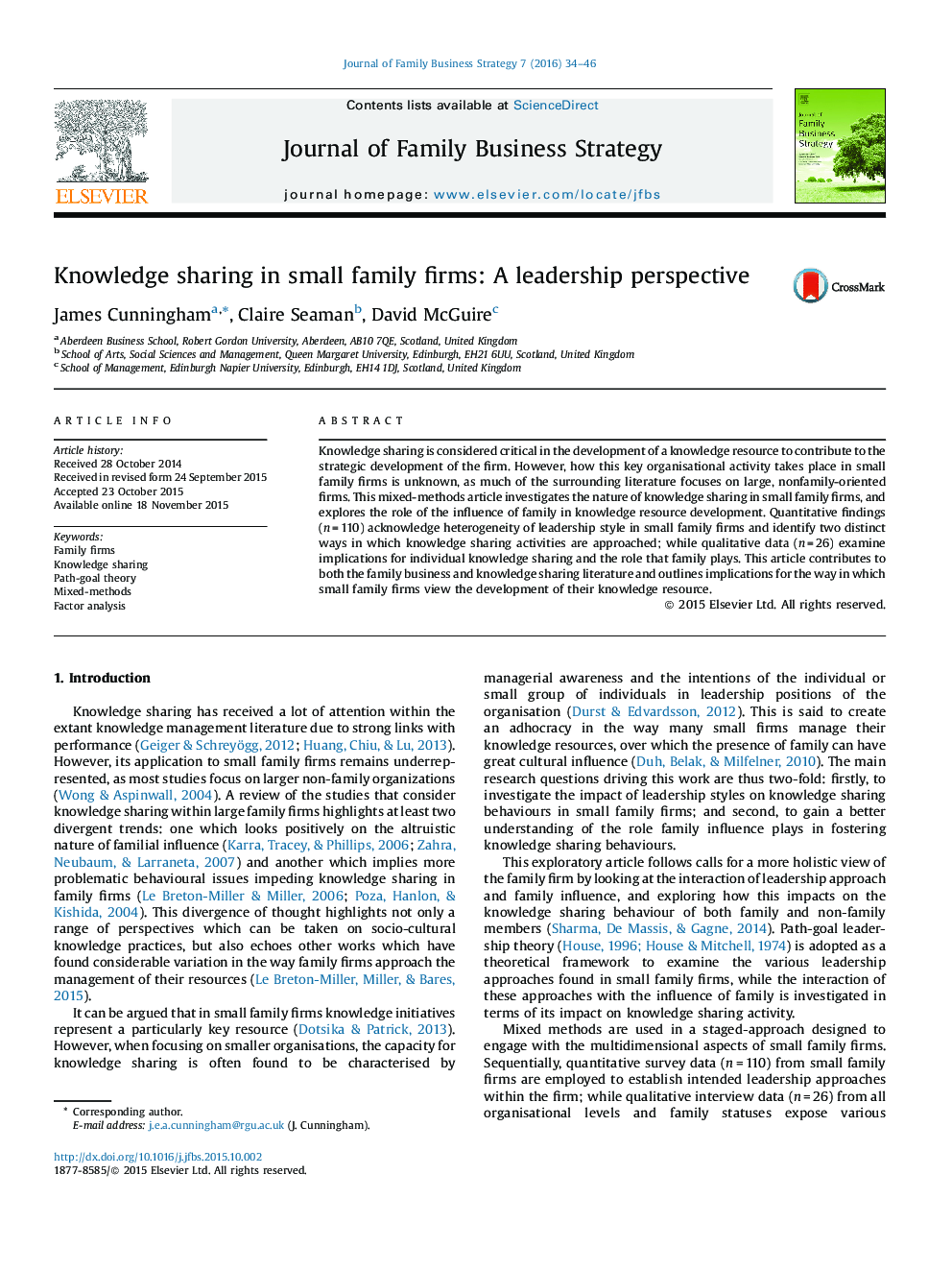| Article ID | Journal | Published Year | Pages | File Type |
|---|---|---|---|---|
| 1020006 | Journal of Family Business Strategy | 2016 | 13 Pages |
•Small family firms vary in the adoption of leadership approaches.•Both participative and supportive approaches influence knowledge sharing activity.•A supportive approach is characterised by centralised family parentalism.•A participative approach is characterised by informal and open autonomy.
Knowledge sharing is considered critical in the development of a knowledge resource to contribute to the strategic development of the firm. However, how this key organisational activity takes place in small family firms is unknown, as much of the surrounding literature focuses on large, nonfamily-oriented firms. This mixed-methods article investigates the nature of knowledge sharing in small family firms, and explores the role of the influence of family in knowledge resource development. Quantitative findings (n = 110) acknowledge heterogeneity of leadership style in small family firms and identify two distinct ways in which knowledge sharing activities are approached; while qualitative data (n = 26) examine implications for individual knowledge sharing and the role that family plays. This article contributes to both the family business and knowledge sharing literature and outlines implications for the way in which small family firms view the development of their knowledge resource.
